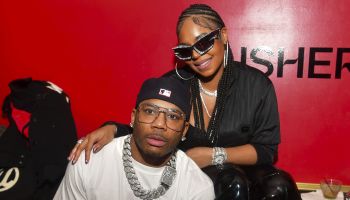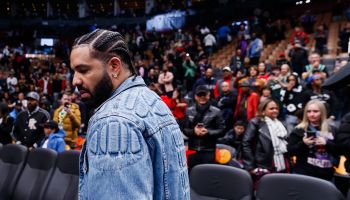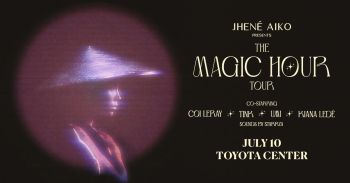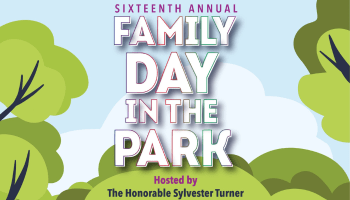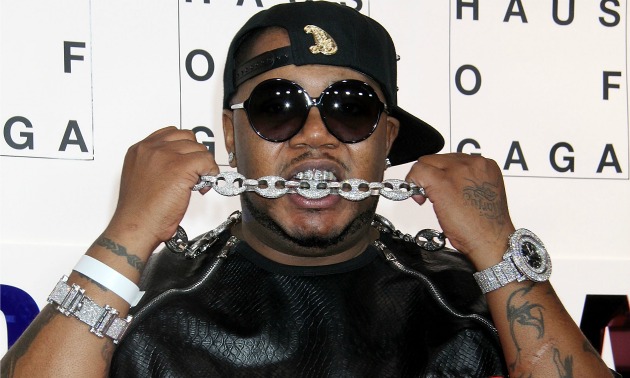 Chicago rapper Twista has clocked more than twenty years in the hip-hop industry and is still considered an underdog. While some artists would be discouraged by their underdog status, Twista uses it as motivation to keep spitting rapid-fire rhymes over catchy beats. The “Overnight Celebrity” rapper refuses to allow anything or anyone get in the way of furthering his musical legacy. Twista says, “I definitely want you to think longevity. When you look back at my career, I want to you say, ‘Damn, he did it like Kareem Abdul-Jabar.’”
Chicago rapper Twista has clocked more than twenty years in the hip-hop industry and is still considered an underdog. While some artists would be discouraged by their underdog status, Twista uses it as motivation to keep spitting rapid-fire rhymes over catchy beats. The “Overnight Celebrity” rapper refuses to allow anything or anyone get in the way of furthering his musical legacy. Twista says, “I definitely want you to think longevity. When you look back at my career, I want to you say, ‘Damn, he did it like Kareem Abdul-Jabar.’”
With his ninth album “Dark Horse,” slated to drop August 1st, TheUrbanDaily spoke to Twista about whether the speed of his rhymes have slowed down his sales and how the lack of respect for history is weakening the foundation of hip-hop.
TheUrbanDaily: What was the sound you were going for in your new album “Dark Horse”?
Twista: The album sounds like 2014 “Adrenaline Rush” with a little turn up to it. I think it’s what people would expect from Twista right now. I stayed true to form, but I definitely gave you a few surprises. I got a few features on the album from people like Chief Keef, Wiz Khalifa and R.Kelly. So it’s an action packed vintage Twista album.
Why did you decide to name the project “Dark Horse”?
T: I feel like I’m one of the dark horses of the industry. I’m one of those guys that will come out and the music will speak for itself rather than bragging about it. People know from the jump that Twista is gonna kill it. It’s like I have to hit them hard with the music and then they take notice. So I can call myself many things. I’m also the Black Jason of rap because I keep coming back. But in this case, I just feel like a dark horse in the industry.
On the single “It’s Yours,” you switched it up for the ladies and slowed your flow down a bit.
With “It’s Yours” is I gave them usual Twista delivery, but what I tried to do was pay attention to the fact that it could possibly be a single. Growing up in the industry, you remember certain things like Diddy telling me he wanted to rap along with the records. I know I’m Twista and you won’t be able to rap along with my words, generally speaking. But I did try to make this one so you would be able to learn the song.
Does the idea that fans aren’t able to fully understand what your rapping in a song hurt your sales or popularity?
It’s definitely possible, but I don’t think anybody can grab every fan or every audience. Everybody has something that they do that the next person might not be able to get into. So with my style of music, I have a lot of fans like every other artist does, but the one down side to a Twista is if you don’t want to exercise your mind and only want to hear some music and simple lyrics; some of my music might not be for you.
What’s been the biggest lesson you’ve learned during your time in the music business?
The feeling of making it or success is not a one time thing. You don’t make one hit or one song and all of the sudden, you’ve made it forever. It’s something that you have to continuously do. Out of sight, out of mind. Being able to say I made it is to be able to make it over and over again.
You started out as Tung Twista and now you’re getting major looks from the pop market for that song with Lady Gaga. What has been the most surreal moment of your career?
Sitting in a BMW at a video shoot with Sting chopping it up about making songs. That one was a big one for me. It’s a lot of them. Being able to meet Tupac. One time I walked up to Rev. Run and he was spitting a few bars of my lyrics. The best is me walking up to my favorite rapper of all time, Rakim, and he knew who I was before I introduced myself. I got a bunch of moments like that.
Do you plan on exploring other avenues of entertainment besides just rap music?
The music is my passion. You have a lot of people who can do various things. I can’t sing or play instruments or do any of that. So it’s mostly rap music.
But for some reason, rap music gets looked at as a form of music that has to stop. You can look an R&B singer or soul singer and you think about them just being cool. If we could get a Frankie Beverly & Maze or a James Brown, why can’t we have the Jay Z’s and Twistas still do it until we’re old and gray? One of the stereotypes about rap we have to change is that rapping has to stop at a certain point. Jazz musicians and B.B. King, they go all the way until they drop. This music isn’t that difficult to do that we can’t do it until we drop. I got the same mentality that the late great Pimp C had–retire, what you mean retire?! [laughs]
What do you think about rap fans focusing so heavily in the new and young guys that we forget to pay respects to the legends and veterans of the game?
It happens a lot and it’s weakening the foundation of hip-hop. It weakens the foundation if we don’t know where our sound came from. This style developed into that style. What MC was rapping like this before you came out? To be able to ask trivia questions to new artists would be dope to see a 17 or 18-year-old artist be able to bring up Rakim or Kool G Rap or EPMD. I come from the time when the history of rap was still important.
Like TheUrbanDaily.com on Facebook to stay updated with the latest entertainment news and original interviews!
READ MORE HOT CELEBRITY INTERVIEWS ON THEURBANDAILY.COM:
Common Explains His Champagne Ambitions On “Diamonds” [EXCLUSIVE VIDEO]
Groupon First Date: “Think Like A Man Too” Cast Weighs In [VIDEO]
Jesse Boykins III Defines Soul & The Shady Politics Of The Music Business [EXCLUSIVE]
Twista: “I Come From The Time When The History Of Rap Was Still Important” [EXCLUSIVE] was originally published on theurbandaily.com









